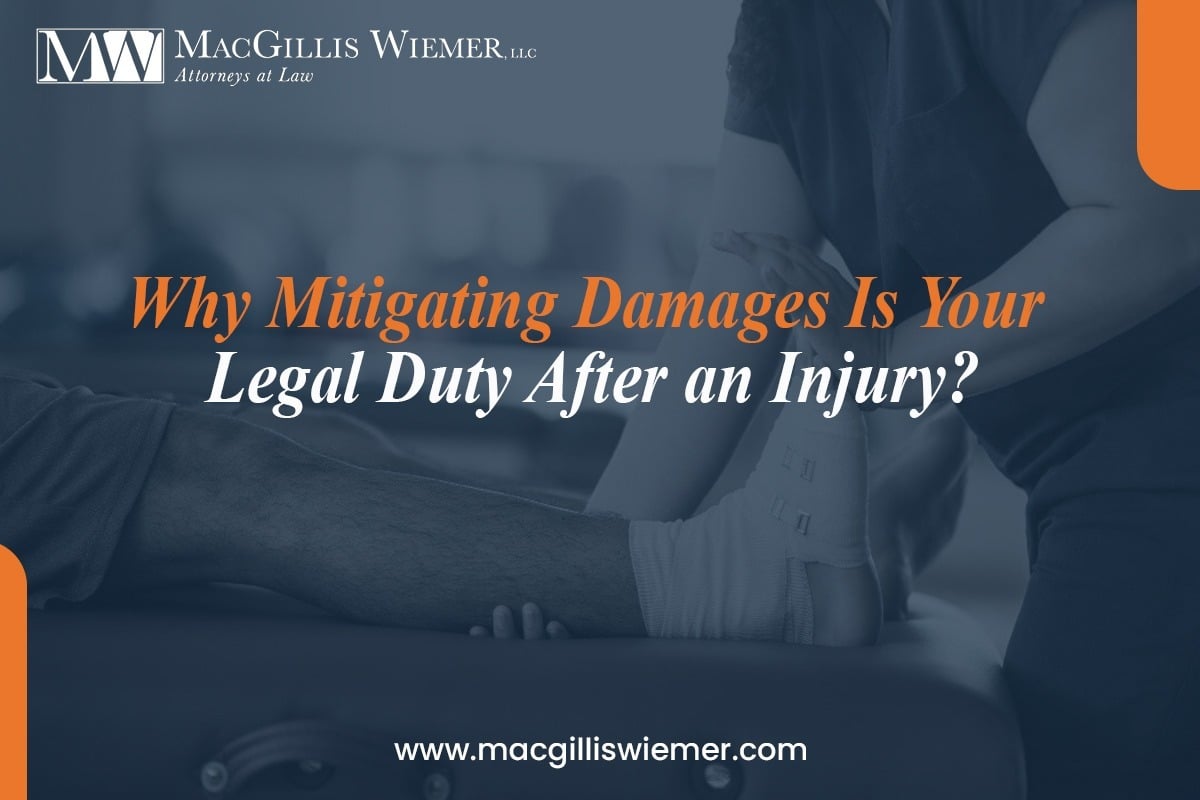If you have been injured due to the negligence of others, you are legally bound to take reasonable steps to mitigate damages after an injury. This implies that you are expected to take the necessary measures to protect yourself from further injuries and financial losses. Failure to mitigate damages could significantly impact your compensation, potentially leading to a reduction or denial of claimed damages in your personal injury lawsuit. To help you understand the mitigation of damages, we at MacGillis Wiemer, LLC make this easier with this comprehensive guide.
What is Mitigating Damages After an Injury Imply?
According to the state of Wisconsin law, the injured victims can claim damages due to other negligence. These damages can be economic damages like compensation for financial losses such as lost employment and medical expenses, and non-economic damages like stress, trauma, and emotional tension caused. The damages include:
- Medical & diagnostics expenses
- Transportation from the accident site to the hospital
- Doctor follow-ups & medications
- Physiotherapy
- Mental trauma & suffering
An injured victim is entitled to recover all these damages from the party that caused the injury. However, the victim should not pile up unnecessary expenses related to their accident or decline medical care that could improve their condition. One is needed by a legal duty to minimize damages by taking appropriate steps to reduce the extent of their damages. Our dedicated Milwaukee personal injury lawyer can help you mitigate your damages and preserve your right to maximum compensation after the accident, providing you with the support and guidance you need.
How Does a Victim Fail to Mitigate Damages?
In case of injury caused by negligence, the injured party should seek medical attention and take the required medical treatment to ensure quick recovery. However, refusing to do so is seen as a failure to mitigate damages. Some other situations are:
- Refusal to seek medical care after the accident that caused injuries
- Indulging in activities that could further prolong recovery or worsen injuries.
- Not doing necessary physical therapy and rehabilitation for quick recovery.
Does Mitigating Damages Mean Incurring Extra Expenses?
Mitigating damages begins right after you have been injured, but it’s not necessary; it will cost you. However, you need to take reasonable steps to minimize damages that could cost you money. Initially mitigating long-term damages can come with extra short-term expenses, but ensure to seek the best medical care because you won’t be billed for that. This care is necessary and reasonable to ensure quick recovery and reduce the time you are unable to work and mental stress. In this journey, you might incur some expenses, so it’s crucial to keep track of all the medical and related costs throughout the process.
What If Someone Fails to Mitigate Damages?
In case of personal injuries, the injured victim needs to seek proper medical care and follow the doctor’s instructions. Failure to mitigate damages is known as an affirmative defense. The defendant can use this to reduce their liability for the damages. Simply put, it gives the party at fault a chance to reduce the compensation payable. The duty to prove failure to mitigate damages lies on the defendant, so they need to have evidence to prove a you have failed to mitigate damages, and hence, it proved they can reduce their liability for your damages.
MacGillis Wiemer, LLC: Get Help with Your Personal Injury Claim
If you have suffered a personal injury caused by somebody’s negligence, speak to our personal injury attorney in Milwaukee. Our trusted legal team helps you take reasonable steps to mitigate damages and recover the compensation you deserve. Let us protect you. Contact us for a free case review today.

